Continued learning and training are essential for building a resilient business team — but does your learning management system (LMS) have what it takes to accomplish this goal?
The 2021 Training Industry Report from Training Magazine reveals that a whopping 98% of large companies and 96% of mid-size companies use LMS solutions. Small companies are less keen on LMS solutions — nonetheless, 80% of small companies use LMS solutions as well.
With such a high percentage of companies now actively leveraging LMS solutions to upskill and train their team members, LMS platforms have grown deeper roots in the business space.
To remain competitive, companies need a learning platform they can rely on — but what, exactly, should a business look for in an LMS platform and where can these platforms fall short? Let’s take a closer look:
What is an LMS platform & what advantages should it provide?
Learning Management Systems (or LMS, for short) are a form of software that helps businesses build a resilient ecosystem for their education, training, and insights.
LMS platforms enable employers to provide training to their teams in a single place. And their effectiveness has translated to high adoption by businesses— the LMS platform market was valued at an estimated $15.77 billion in 2022, with the market expected to grow by 16.8% annually to reach a projected value of $29.35 billion by 2026.
The key component that makes an LMS platform advantageous is the ability to offer different types of learning resources and module: from onboarding and new hire training to continued training for experienced employees and relationship-building between departments.
As one Twitter representative states on the topic of LMS solutions:
“ — Education isn’t just about teaching. It’s about recruiting instructors, managing relationships, and helping develop content, which sometimes requires a global view.”
3 reasons your current LMS platform isn’t working
Before you can begin improving your business’s approach to continued learning, it is crucial to first know which drawbacks you are facing with your current LMS platform.
Here are three potential reasons your LMS platform is not as effective as it could be:
1. Lack of codified knowledge & tribal knowledge sharing
One major potential drawback of using the wrong LMS platform is the inability to centralize company knowledge, processes, and documentation. This is particularly troubling when it comes to codifying knowledge and tribal knowledge sharing.
Codified knowledge refers to the process of creating a knowledge base for employees and instructors to use. This can include everything from thorough documentation of company processes (for example, a well-documented deployment strategy at a software company) to access to educational tools that help build consistent and personalized learning resources (like courses or tutorials).
Meanwhile, tribal sharing knowledge refers to knowledge that is socially shared among team members and departments at a business. Sharing knowledge establishes improved communication channels and enables employees to get to know the company as a whole on a much deeper level.
The ability to codify knowledge and engage in tribal knowledge sharing is vital to any successful LMS platform, as it allows employers to eliminate departmental silos, which are infamous for inhibiting innovation and growth.
2. Insufficient automation & digital resources
The second potential downside to watch out for in LMS platforms is insufficient digital resources.
Ideally, an LMS platform should provide your business with the right digital resources needed to optimize in-house learning with ease. Automation is, without a doubt, one of the most crucial considerations; it can reduce the manual labor and developmental effort required to manage an LMS platform.
For example, to organize a group training session for employees, businesses must coordinate certain tasks aside from creating the curriculum for the training session. Many of these tasks can be automated to simplify the process, such as:
- Automated workflows that send calendar invites, assignment due dates, reminders, and more
- Integrated analytics and progress tracking
- Automatic report generation and integrated employee surveys
Without the right level of automation and digital support, an LMS platform can become more hassle than help.
3. Non-immersive & non-social learning
Immersive and social learning refers to the process of incorporating more mentally and socially engaging elements into a continuous learning strategy for employees.
Consider this insight from Dion Stewart, author of Creating Your Dojo: Upskill Your Organization for Digital Evolution:
“Learning is social… If we’re working with someone directly in real time trying to help them learn something, that feedback loop… is incredibly important for learning to occur.”
For an LMS platform to be worthwhile, it needs the right features and tools in place to enable immersive and social learning. Circling back to our earlier points, this can include capabilities such as tribal knowledge sharing and codified knowledge.
However, it can also expand past these capabilities to include additional learning resources, such as live workshops for enhancing specific skills and automated analyses that help to pair experienced employees as mentors with new hires.
Final thoughts: How PlusPlus adds on to LMS platforms with employee enablement
When it comes down to it, the key differentiator that sets an exceptional LMS platform apart is employee enablement — a process for personalizing learning and empowering employees to do their best work.
At PlusPlus, our employee enablement platform offers exactly this — a more comprehensive LMS solution that covers both your technological needs and your interpersonal needs, such as facilitating interdepartmental collaborations and creating an easy-to-access digital knowledge base.
PlusPlus also ensures your learning materials and resources are preserved long-term, helping you expand your business’s knowledge-sharing capabilities as you grow.
Take a look at what Netflix had to say about working with PlusPlus:
“…I like that, when I create content on the Plus Plus platform, I’m building this library of content that I feel is really impactful for engineers. And so when I go and I see a track that I created and I just see the dozens of courses I’ve created, it makes me feel like I’ve immortalized my work.”
With PlusPlus, you can benefit from our innovative approach to employee enablement and LMS. Our platform is flexibly designed to meet your unique needs and to scale with you as you grow.
Find out more today and book a demo with PlusPlus.






